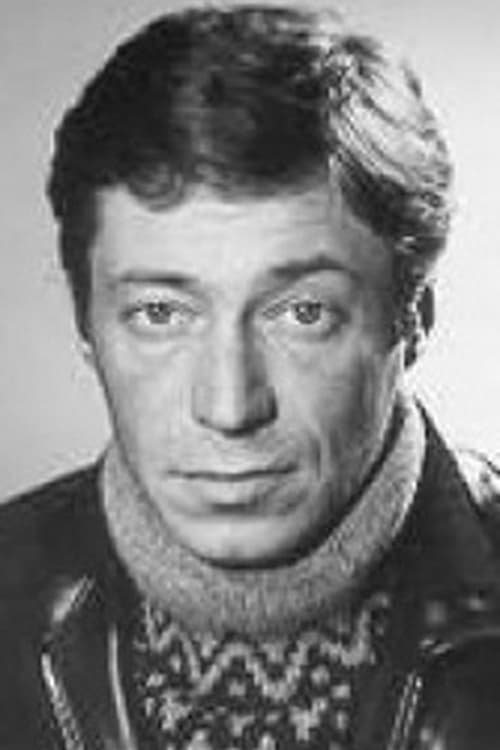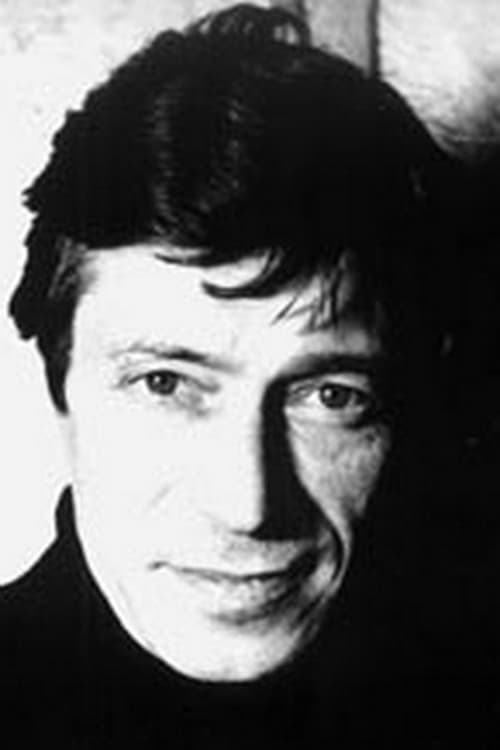Georgi Rerberg
출생 : 1937-09-28, Moscow, RSFSR, USSR
사망 : 1999-07-28
약력
Georgy Ivanovich Rerberg (Russian: Георгий Иванович Рерберг, September 28, 1937, Moscow, Soviet Union, – July 28, 1999, Moscow, Russia) was a Russian cinematographer. He is known for his work on Andrey Tarkovsky's Zerkalo (The Mirror). He started as cinematographer on Andrey Tarkovsky's film Stalker but was later replaced with Alexander Knyazhinsky. Rerberg's notable portfolio of two dozen films includes works with world-renowned Russian film directors Andrei Konchalovsky, Andrei Tarkovsky, Igor Talankin, Sergei Solovyov, Ivan Dykhovichnyand others. Georgy Rerberg was grandson of Russian civil engineer and architect Ivan Rerberg.

Himself
The conflict surrounding the production of Andrei Tarkovsky's 1979 masterpiece 'Stalker', as well as a look at the tragic character that was Georgi Rerberg.

Self
A short documentary about the life and career of genius cinematographer Georgi Rerberg

Director of Photography
The film is a memoir dedicated to the world-famous violinist Oleg Kagan.

Director of Photography
Almanac of five short stories commissioned by ROSKOMKINO to celebrate the 100th anniversary of cinema.

Director of Photography
Beginning in South Africa under the apartheid regime, the film follows a young girl who flees the country after a violent confrontation with a local white landowner in which her father is killed. She settles in Abidjan, where, ten years later, she has become a university student. As part of her studies, she visits the Taureg tribe on the edge of the Sahara before at last returning to post-Apartheid South Africa.
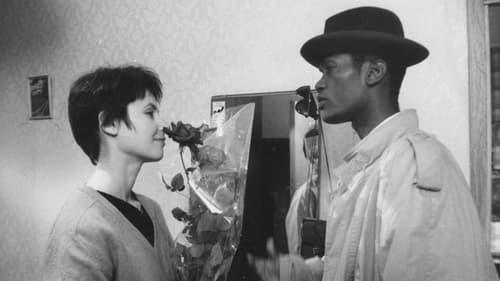
Director of Photography
Ira wanders around the streets of Moscow. She's pregnant with the child of Adrissa, an african student.

Writer
Ira wanders around the streets of Moscow. She's pregnant with the child of Adrissa, an african student.

Director of Photography
A young girl takes refuge in the woods to escape her mother's rages. Here she reenacts scenes of her physical and sexual abuse using stuffed dolls. It seems she wants her late father back, despite the sexual abuse, for at least he loved her. Now all she has left is her physically and mentally abusive mother.

Director of Photography
It was one of his mentors who once told Kossakovsky, "There are two types of intelligent people; some say what they know, while others think while they speak, in order to try and say something they did not know yet, something that suggests itself in them." Victor Kossakovsky took this profundity to heart and became a filmmaker of the second category. He dedicated his documentary debut to the speaker of these words, the Russian philosopher and religious thinker Alexey Fedorovich Losev (1893-1988), who died shortly after the completion of this film. Shot in black-and-white, the film consists of two crucial shots that symbolize silence and night at both ends of the life chain. In the beginning of the film, the rising sun slowly swathes a cemetery in daylight. At the end, the earth covers a coffin bit by bit and heralds the great darkness. In Losev's words, "Divine intentions that lie beyond our reason, that's why we die."
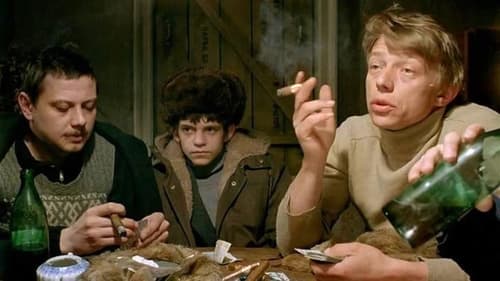
Director of Photography
A young teenage boy zealously tracks down criminals in this allegorical drama. Using the code name of Plumbum, Ruslan Chutko (Anton Androsov) delights in the pursuits of lawbreakers before informing the police, and he even turns in his own father when he catches him poaching fish. The questions are left to the viewer whether or not Plumbum is a crusading hero or a scoundrel. Western audiences may find the premise implausible, but children were known to inform on their own parents under the regime of Josef Stalin and others.

Director of Photography
A documentary on the life of the famous actress, deceased wife of the director Grigoriy Aleksandrov.

Camera Operator
The film tells about the most significant church holidays and religious rites.

Director of Photography
A drama from the life of two generations of a big family from Leningrad. Loosely based on a novel by Yuriy Nagibin.

Writer
A painter lives with his wife and four children in a studio. Due to creative frustrations and the irritation of admirers and hangers-on he becomes increasingly reclusive, finally sealing himself away in the attic. Based on an Albert Camus story.

Director of Photography
Falling Star is based on three stories by the contemporary Russian writer Viktor Astafyev and centers on a young soldier on the front lines who is wounded and taken to the hospital. Once there, he muses about his childhood and a little girl he had loved - someone who could easily have grown up to be the nurse that is attending to him now. As he recuperates, he and the nurse fall in love and he very much wants to marry her. At this point, the nurse's mother comes for a visit and advises him against such an action because if they were to marry and he were subsequently killed or maimed in action - the fighting is still close to the hospital - the nurse would suffer much more than if he just left her alone. Now it is up to the soldier to make a decision one way or the other.
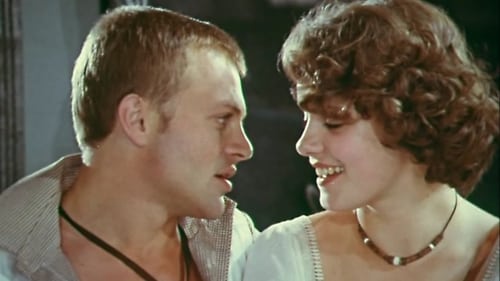
Director of Photography
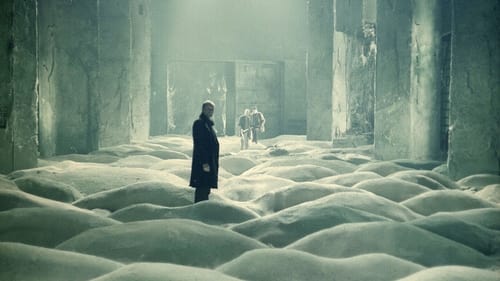
Cinematography
잿빛의 이름없는 이 도시는 '구역'이라는 곳으로 철조망으로 둘러싸여 군인들이 지키고 있는 외계의 공간이라 알려져 있다. 아내의 만류에도 불구하고 스토커라는 이름의 한 사내가 칠흑 같은 어둠 속을 걸어나온다. 그는 구역 안으로 사람들을 안내할 수 있는 정신적인 재능을 부여받은 소수의 무리 중의 하나이다. 하지만 이 일은 너무나도 위험천만한 일이기 때문에 정부에 걸릴 경우엔 감옥행도 불사해야 하는 일이다. 사람들이 이 구역 안의 공간으로 들어가고자 하는 이유는 이곳에 가는 오직 한 사람만 자신의 비밀스런 꿈을 이룰 수 있다는 설이 있기 때문이다. 그 날밤, 스토커는 두 사람을 안내해 구역 안으로 들어간다. 한 사람은 유명한 작가로 이제는 영감이 소멸돼 자신의 천재성에 대해 회의를 갖기 시작하는 사람이고, 또 다른 한 사람은 조용한 과학자로 여행보다는 배낭에 더 관심을 가지는 사람이다. 버려진 공간 '구역'에서 그 공간을 향하는 길은 정해져 있지 않다. 그들이 점점 공간에 가까이 다가갈수록 규칙은 변하고 스토커는 커다란 위험에 직면하는데...

Director of Photography
A film adaptation of the novel of the same name by Leo Tolstoy.
The main character of the film is Prince Stepan Kasatsky, an officer, an ardent, proud young man — a big fan of the tsar. Kasatsky is going to marry, but at the last moment he learns from the bride that she was the mistress of the emperor. The prince is deeply disappointed in social life, he takes a monastic vow and leaves the capital. Faith in God was to save the soul, but passions and worldly temptations don't leave Kasatsky.

Director of Photography
A Russian composer and Japanese pianist enter a relationship strained by their geographic and cultural boundaries.
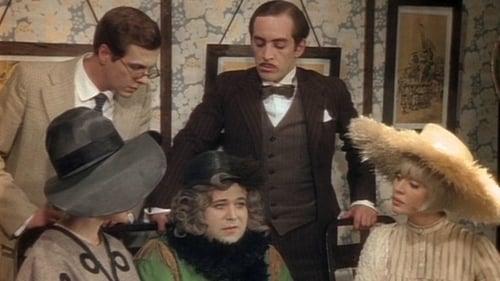
Director of Photography
A funny comedy based on famous Brandon Thomas' play "Charley's Aunt".

Camera Operator
Mrs. Gurmyzhskaya, meets old age in his estate, in a remote province. Her estate comes nephew, half-educated pupil and mistress, boredom, decides to have an affair with him... Anyone willing to meet a rich aunt "reciprocity".

Director of Photography
2차 대전 중, 러시아의 어느 시골 마을에서 한 여인이 통나무 울타리 위에 앉아 남편이 돌아오길 기다린다. 그때 한 의사가 그녀에게 다가와 "우리는 늘 불신하고 서두르죠. 생각할 시간이 없어요" 라는 말을 남기고 지나간다. 어린 알료사는 아버지가 어머니의 머리를 감겨주는 모습을 보고, 어머니는 거울을 들여다보기 시작한다.
안드레이 타르콥스키 감독의 자전적인 성격이 강하게 나타나 있는 영화로, 이 영화도 그의 다른 영화들처럼 상징과 시적인 언어로 줄거리를 이어간다. 거울은 인간의 삶을 비추는 반영으로 이용되고, 사람들을 그 거울을 보면서 인생을 다시 한 번 생각하게 된다. 삶의 근원적인 문제, 희생과 구원, 고향을 잃어버린 자의 향수 등을 독특한 언어로 그려온 안드레이 타르콥스키. 그의 작품이 새로운 세기에도 여전히 힘을 잃지 않은 것은 그 안에 인간이 들어있기 때문일 것이다. 영화는 제2차 세계대전 과정과 그 이후의 러시아의 역사와 풍경을 묘사하며 각각의 에피소드들은 여러 감정과 느낌을 부유하는 이미지들로 포착했다. 영화 속 화자의 의식 흐름을 받쳐주는 시들은 감독의 아버지 아르세니 타르콥스키의 작품들이고, 감독이 직접 낭송했으며 마지막 장면에 자신의 어머니를 출연시키기도 했다.

Director of Photography

Director of Photography
The film tells about the life of the Soviet country in the 30s of the twentieth century, based on the feuilletons and notebooks of famous writers Ilya Ilf and Eugene Petrov…

Director of Photography
The film-remembrance of the creative fate of the Ukrainian Soviet film director Alexander Dovzhenko, shot on his diaries.
It has his statements about his work, about the role of the artist in society, his plans and sources of inspiration, his artistic style and the peculiarities of his worldview.
Used excerpts from his films and documentary footage taken during the director's life, as well as filmed fragments of the unfinished scripts " The Death of the Gods” and “Tsar”.

Director of Photography
The film is a play based on the novel “An Ordinary History” by Ivan Goncharov directed by the Sovremennik Moscow Theater. The main roles were played by Oleg Tabakov, Mikhail Kozakov, Lyudmila Ivanova, Anastasia Vertinskaya and others.
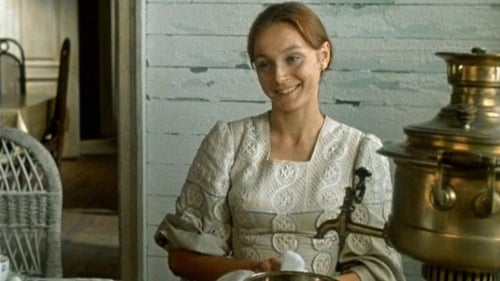
Director of Photography
Serebryakov, a retired professor and his beautiful, much younger second wife, Yeléna, visit their country estate, which funds their urban lifestyle. Vanya, brother of the Professor's first wife, who manages the farm estate, and the local Doctor Astrov, both fall under Yelena's spell, while complaining of the endless ennui of their provincial existence. Astrov is an experienced physician who performs his job conscientiously, but has lost all idealism and spends much of his time drinking. Sofya, the Professor's daughter by his first wife, who works to keep the estate going with her uncle Vanya, meanwhile suffers from lack of esteem over what she sees as her own lack of beauty, and from an unrequited love for Dr. Astrov. Matters are brought to a head when the Professor announces his intention to sell the estate, Vanya and Sofya's home, to achieve a higher income for himself and his wife.

Director of Photography
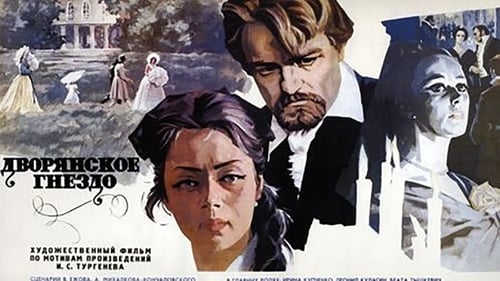
Director of Photography
A screen adaptation of the novel of the same name by Russian writer Ivan Turgenev. The film portrays the life of Russian landed gentry in the 1840s. After a long travel in Europe, nobleman Lavretsky returns back home. Everything in his estate is so familiar and dear to his heart. On his first visit to his neighbors, the Kalitins, he meets Lisa. He forgets his wife, left in Paris, forgets all his past. He desires only one thing – to always be with Lisa who is so unlike the women he used to know.

Director of Photography
About gentle, tender and proud love of Asya, a lame woman, and the driver Stepan who is a good-for-nothing person.

Director of Photography
Dyuishen is assigned to the mountainous Kirghiz region of Central Asia by the Young Communist League after he is discharged from the Red Army. It is 1923 and the Civil war has ended. The former soldier becomes a teacher, bringing the Leninist doctrine to the remote Moslem area where elders did not allow children to go to school. He falls in love with one of his students, but the young woman is sold by her father to a wealthy chieftain. When the school is burned down, the majestic poplar trees that are a source of local pride are cut down to rebuild the new structure.
